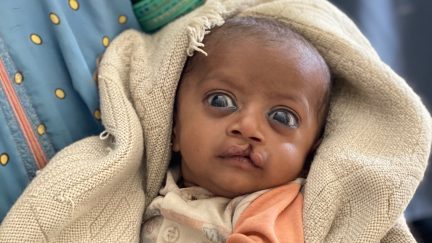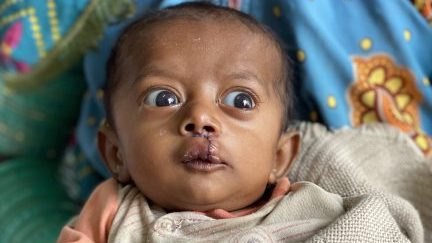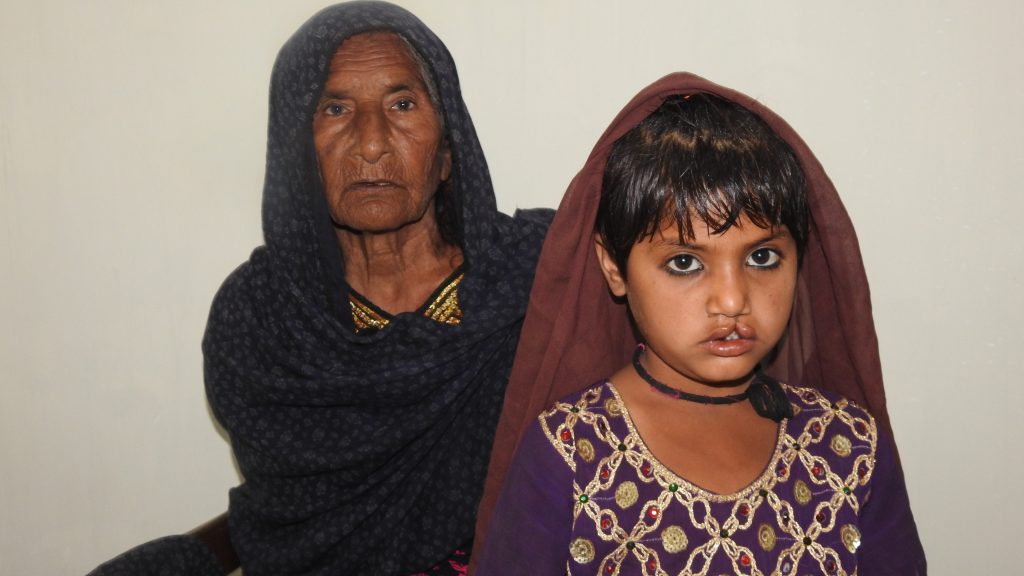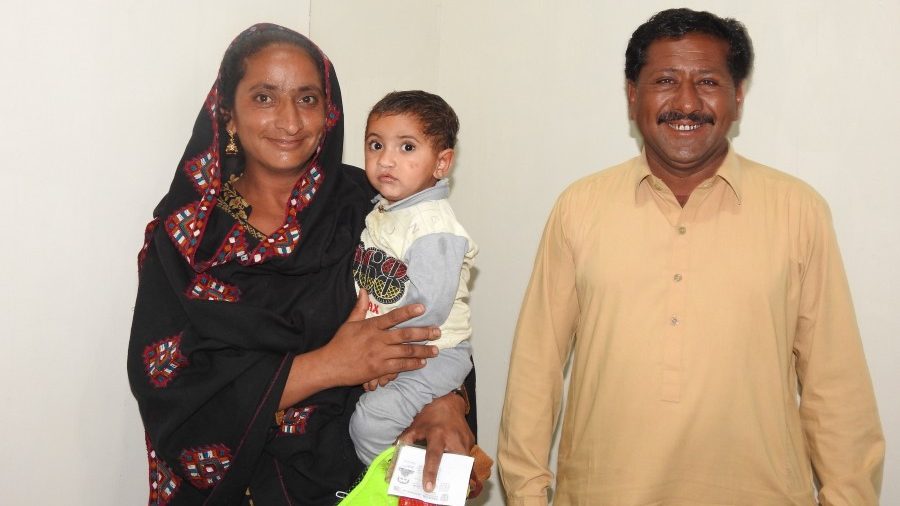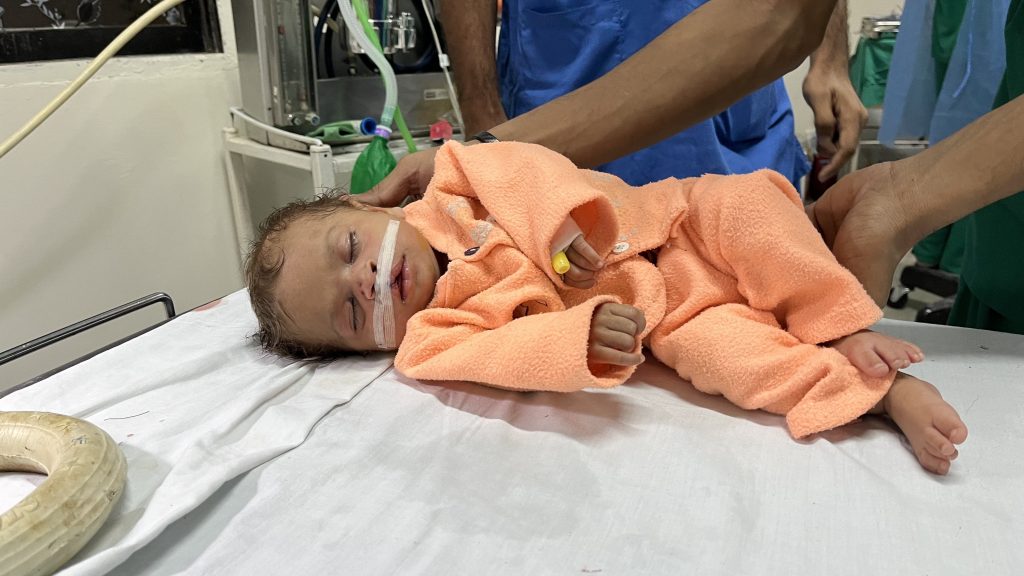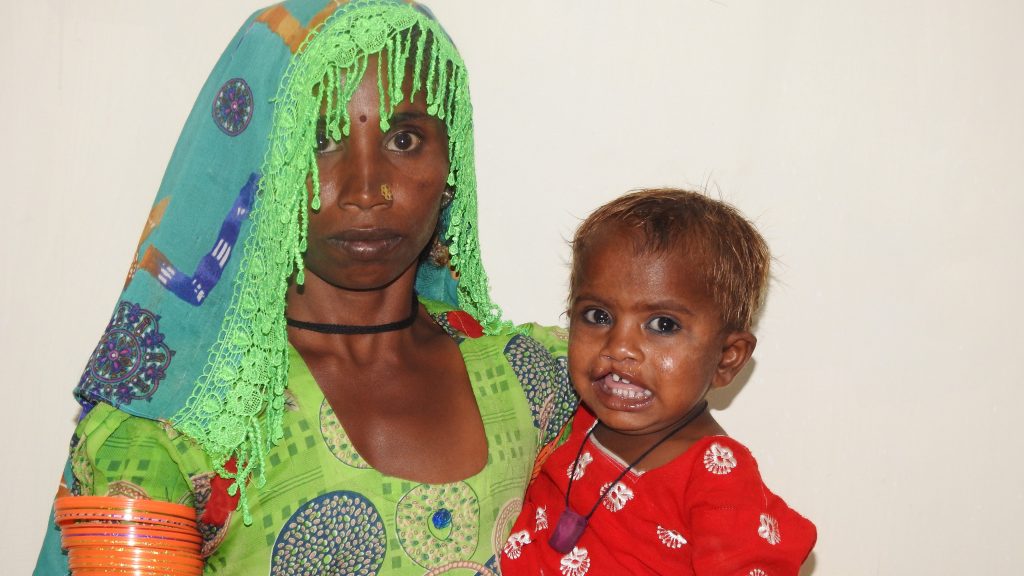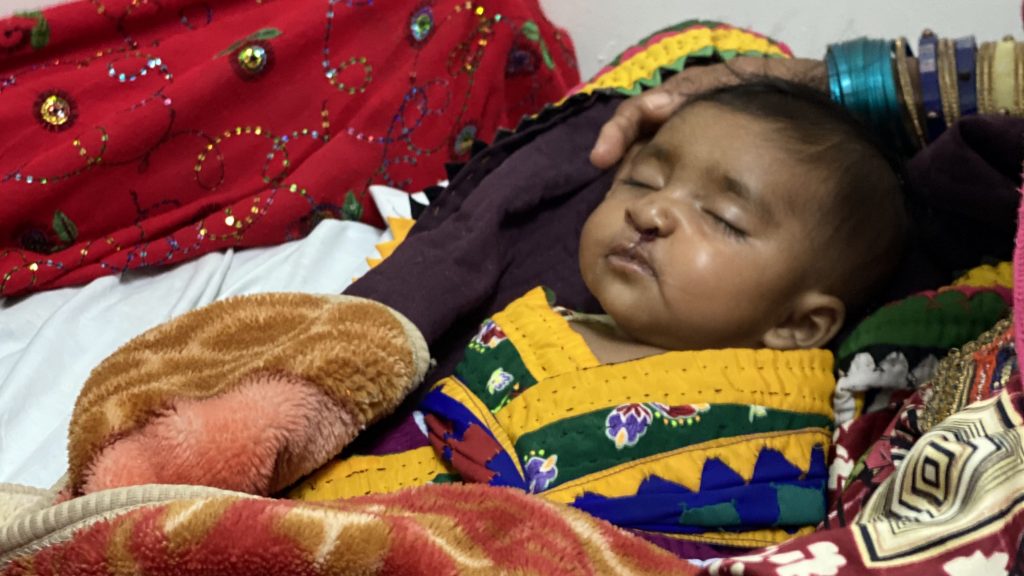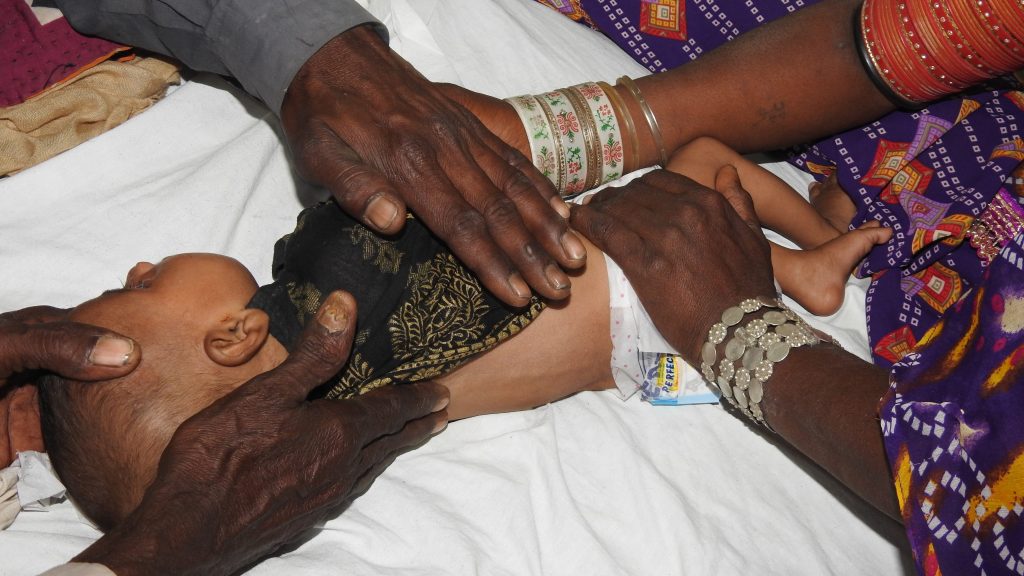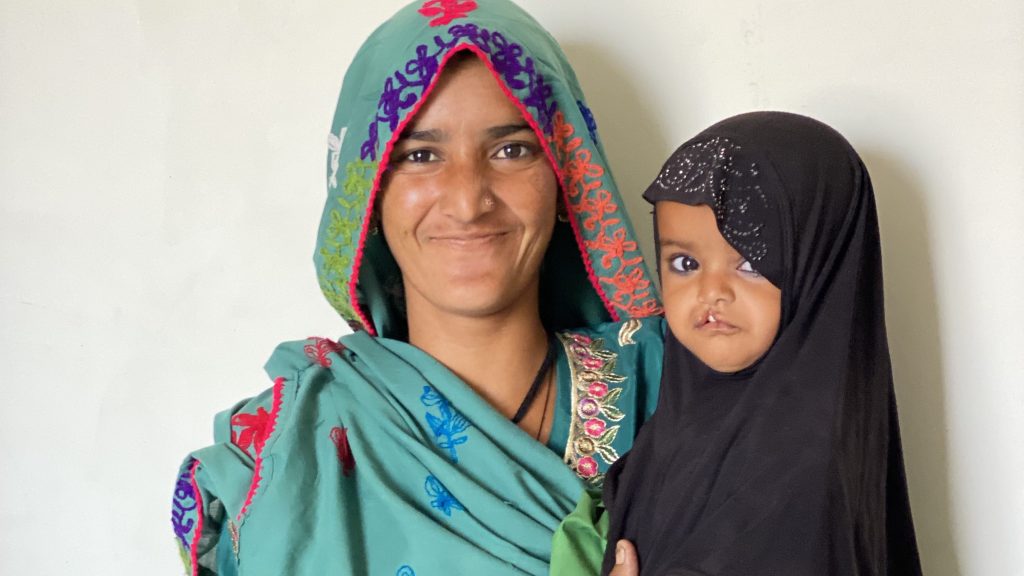We have been active in Pakistan since 2013. In 2016, we were able to significantly expand our effort to help children with cleft lip and palate in Pakistan by entering a cooperation with the experienced surgeon Prof. Dr. Muhammad Ashraf Ganatra and the Pakistani charity Al-Mustafa Welfare Society. The cooperation has been highly successful: In 2022, Prof. Ganatra’s team provided nearly 1,400 cleft surgeries. Under a grant from the German Federal Ministry for Economic Cooperation and Development (BMZ), we additionally established an interdisciplinary cleft center in Karachi starting in late 2020. Enabling all children with cleft malformation treated by us in Pakistan to live the best possible lives is the overarching goal of the three-year BMZ-funded project. To evaluate the project, a delegation from Deutsche Cleft Kinderhilfe recently traveled to Pakistan. Delegation members Dr. Ulrike Lamlé, Sylvia Lüdtke-Haas and Andrea Weiberg were in Pakistan from February 27 to March 5, 2023.
Background
Pakistan also holds a leading position in another statistic: Pakistan has the second-highest out-of-school rate in the world. Many children still drop out of school prematurely or receive no education at all. The illiteracy rate is 42 percent, and as high as 53.5 percent for women (sources: BMZ, unicef).
The current living situation in Pakistan is difficult due to high inflation (as of February 2023: almost 40 percent). Many of our patients’ families are moving to the countryside because they can no longer afford to live in Karachi. But due to the high cost of gasoline, even transportation to the city is almost impossible to afford. This is a far-reaching problem, whose impact we feel in our work as well: It is becoming increasingly difficult to motivate parents to take their children to the follow-up appointments after the operation. Or an operation cannot be performed as planned because it is discovered during the preparation for the surgery that the child is ill, and the parents cannot afford the cost of a second trip.
Arrival in Karachi
Opening of our cleft center
In the presence of the German Consul General Rüdiger Lotz, our new cleft center is ceremoniously inaugurated on day 2 of our trip. In a presentation, Prof. Ganatra introduces our project and its successful development over the last five years. During the subsequent tour of the hospital, the various specialist departments provide exciting insights into their work – a valuable exchange for all participants. Prof. Ganatra and his team are pleased with the interest shown by the Consul General, who is impressed by what has been achieved.
From the very beginning, Prof. Ganatra’s vision was to offer his patients comprehensive care beyond the surgery. Thanks to his efforts, the funding from the BMZ, and the support of the Al-Mustafa Welfare Society, this has now become a reality. We are proud of this exemplary project and will do everything in our power to ensure that the affected children and their families continue to receive this vitally important care in the future.

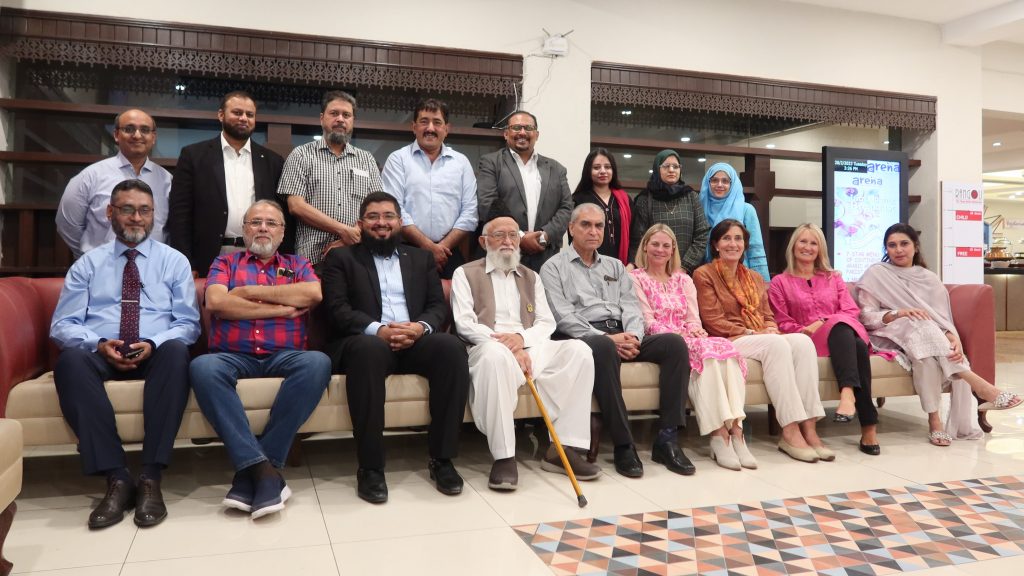
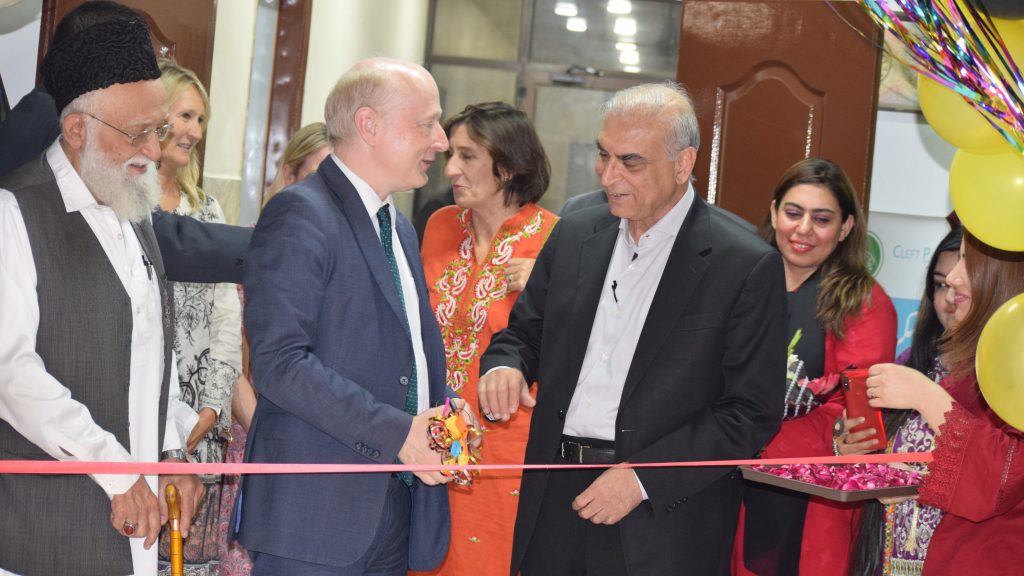

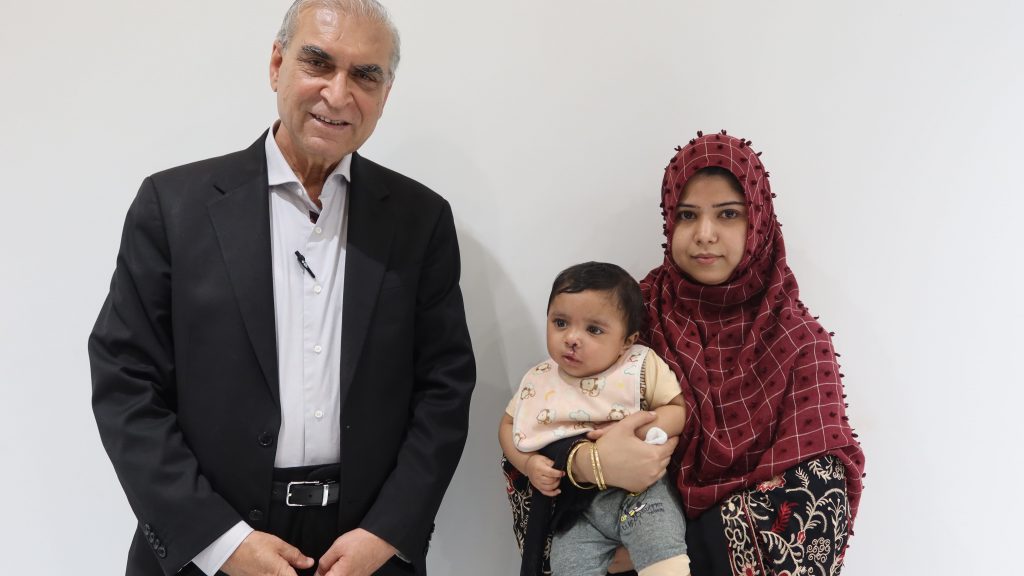
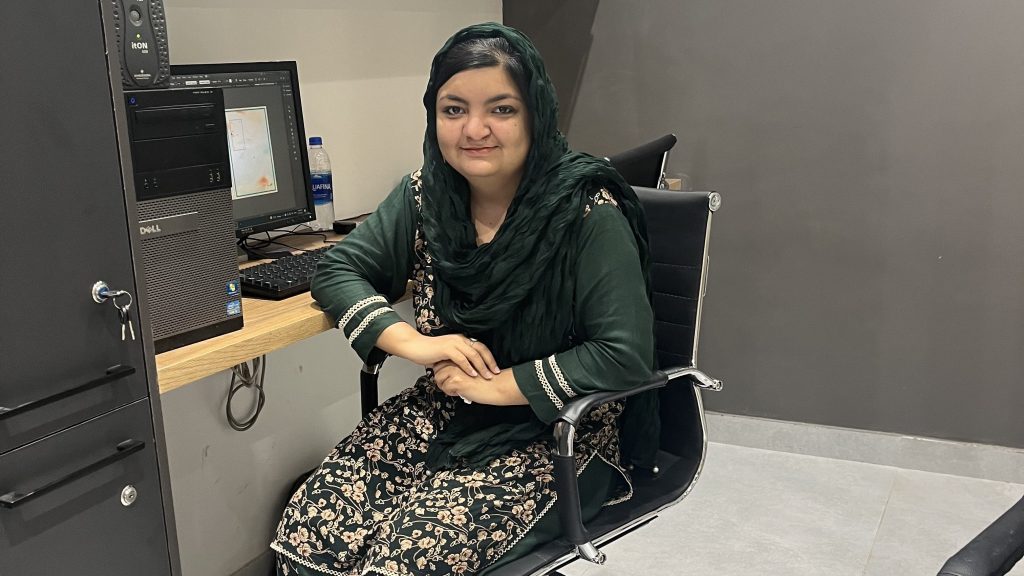
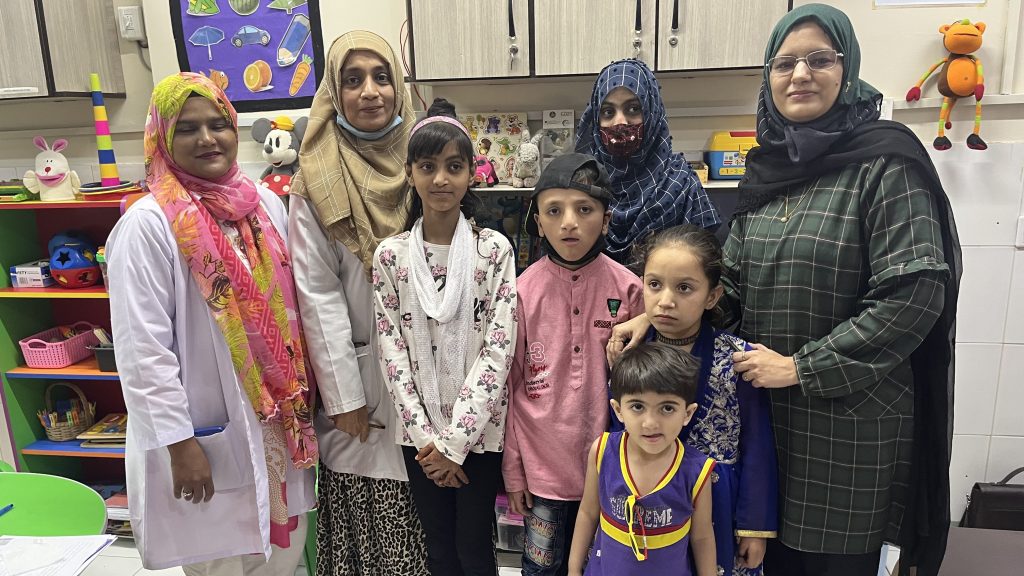
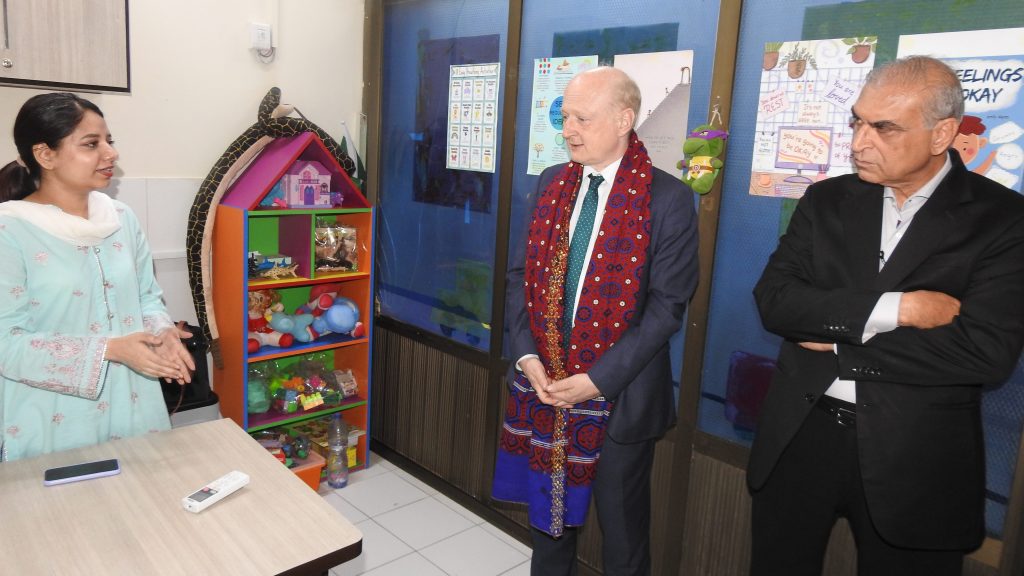
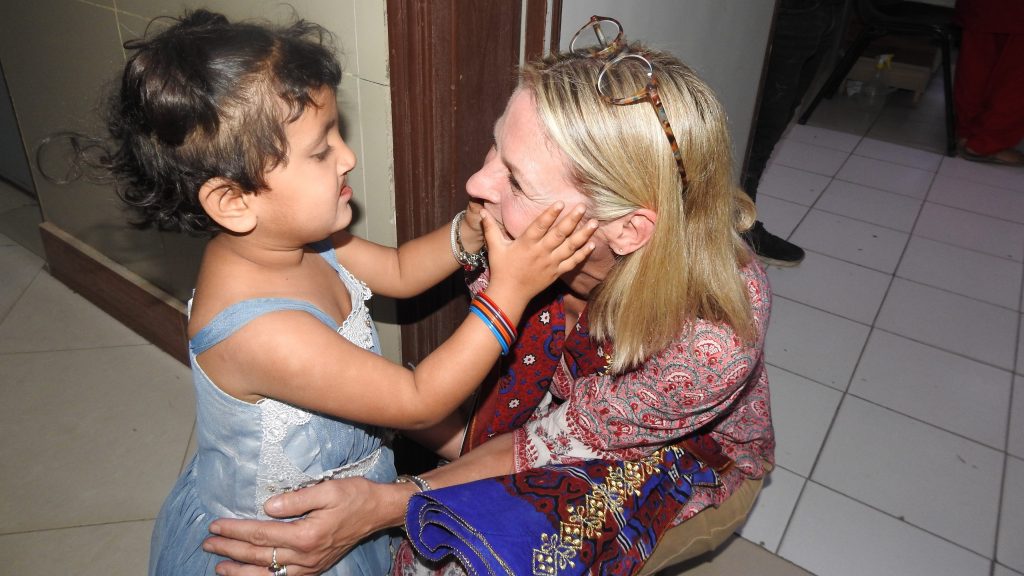
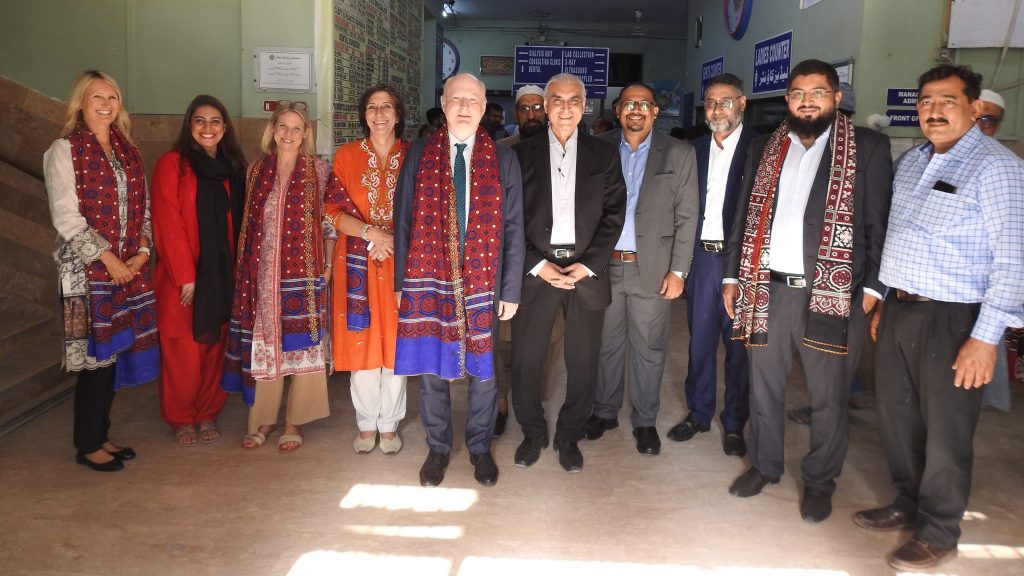
Surgical mission to Umarkot
From the mega-city of Karachi, we set off on a journey to Umarkot – quite the change of surroundings: Umarkot is a small town in eastern Pakistan, near the Indian border. Prof. Ganatra regularly carries out surgical missions to treat cleft patients here, accompanied by a large team. Everything is perfectly organized. Everyone has a job to do: from patient communication and photo documentation to comprehensive medical care of the patients – the team is well-coordinated and the procedures are tried and tested. This is important, because surgeries outside a fixed project location require particularly careful organization.
Our operation site is the Late Syed Ali Mardan Shah Hospital. The hospital was completely destroyed in the catastrophic flood in the summer of 2022 and is currently being rebuilt. We are allowed to use the operating room, but have to bring the necessary equipment ourselves. We are supported by the local aid organization OBA (Old Boys Welfare Association) from Dhoronaro and experience an incredible motivation to help, as well as an incredible hospitality.
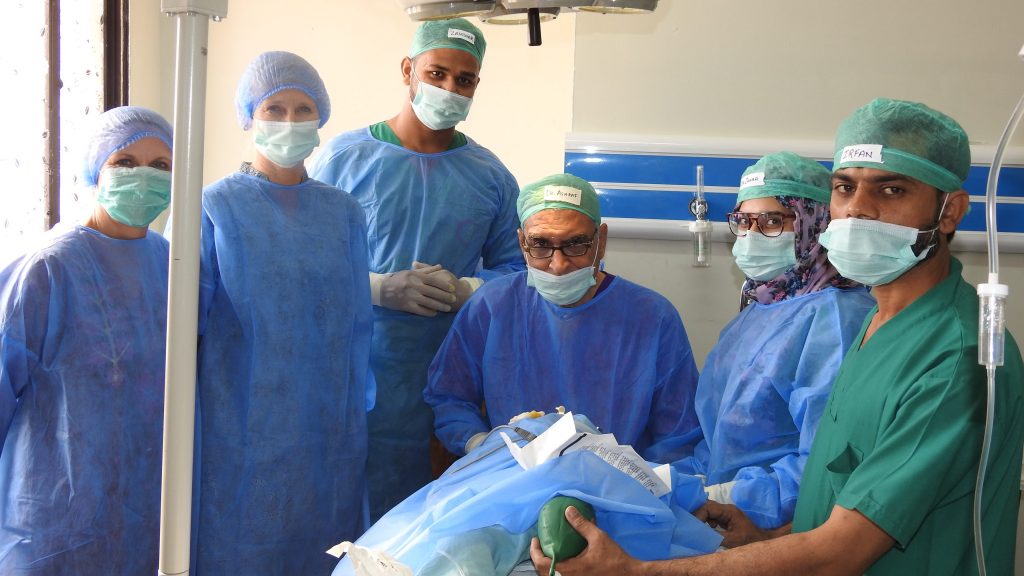
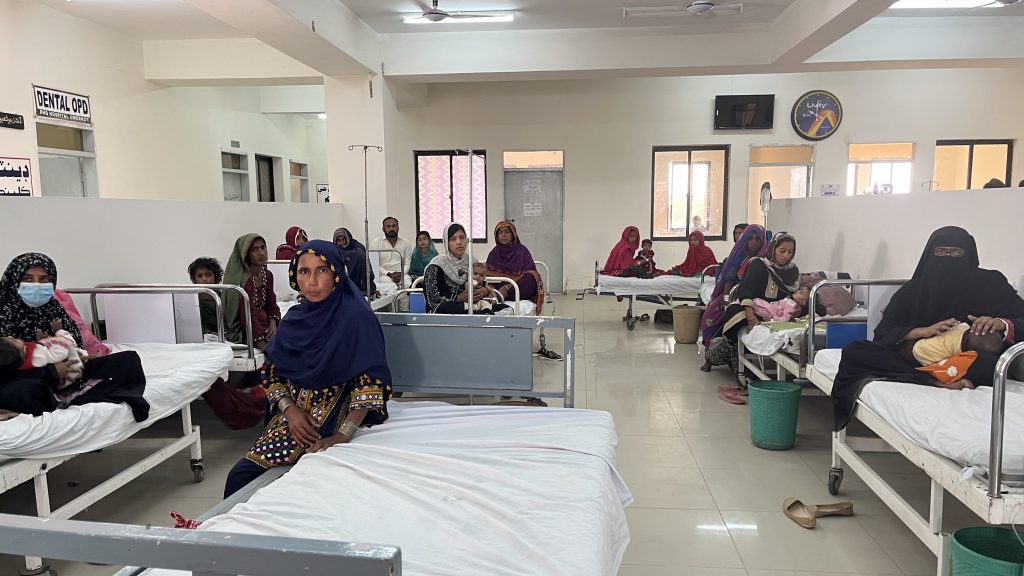
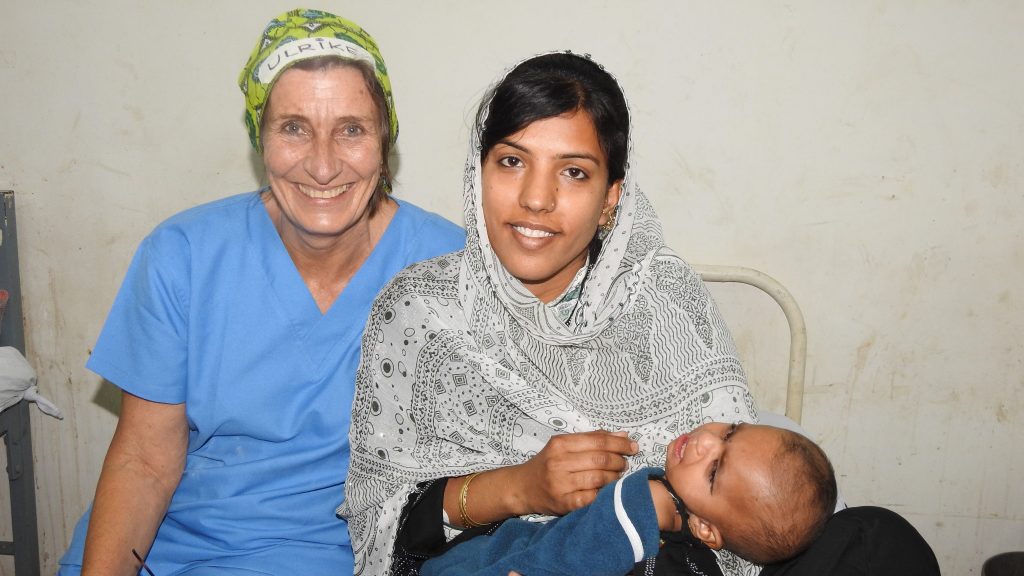
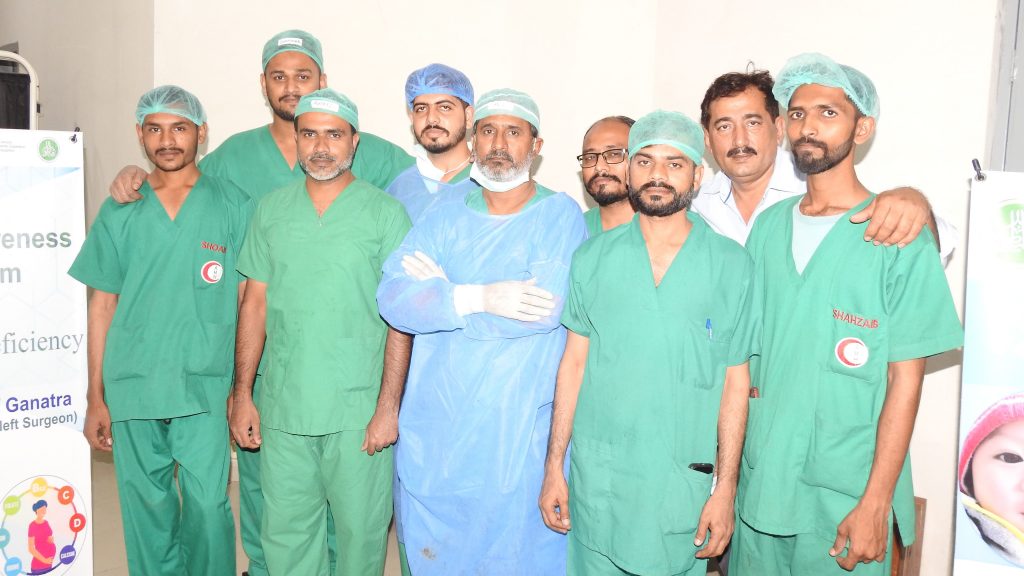
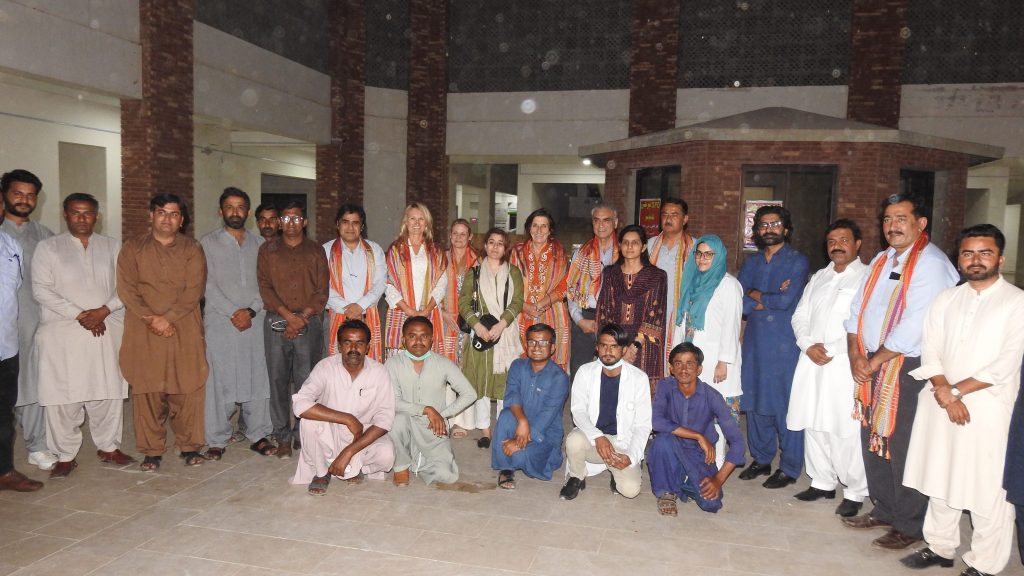
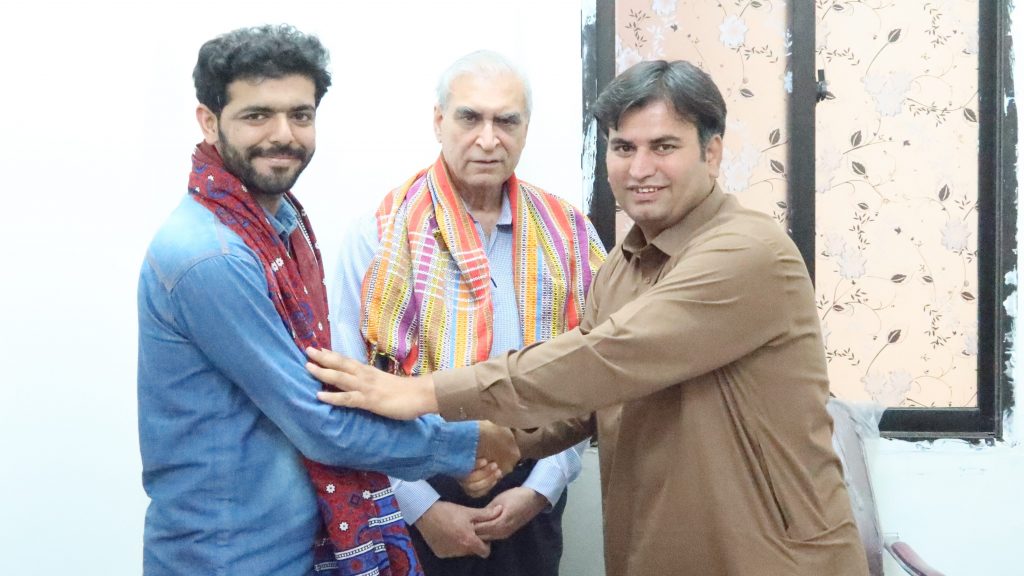
A great need for help
Many families have traveled long distances to have their children receive treatment from our team. There are no drop-in centers in the region for patients with cleft malformation. The children are accompanied by their parents, grandparents or other family members. The women are shy, hiding behind their scarves. The poverty is obvious. A striking number of babies are malnourished. The desperation and worry of the mothers are palpable. Here, surgery means saving lives. After the surgery, the entire family watches at the child’s bedside, caring touchingly for the little patient, following the nurses’ instructions. The relief is palpable.
A total of 40 children received surgery during the two days in Umarkot. The next mission is already being planned.
